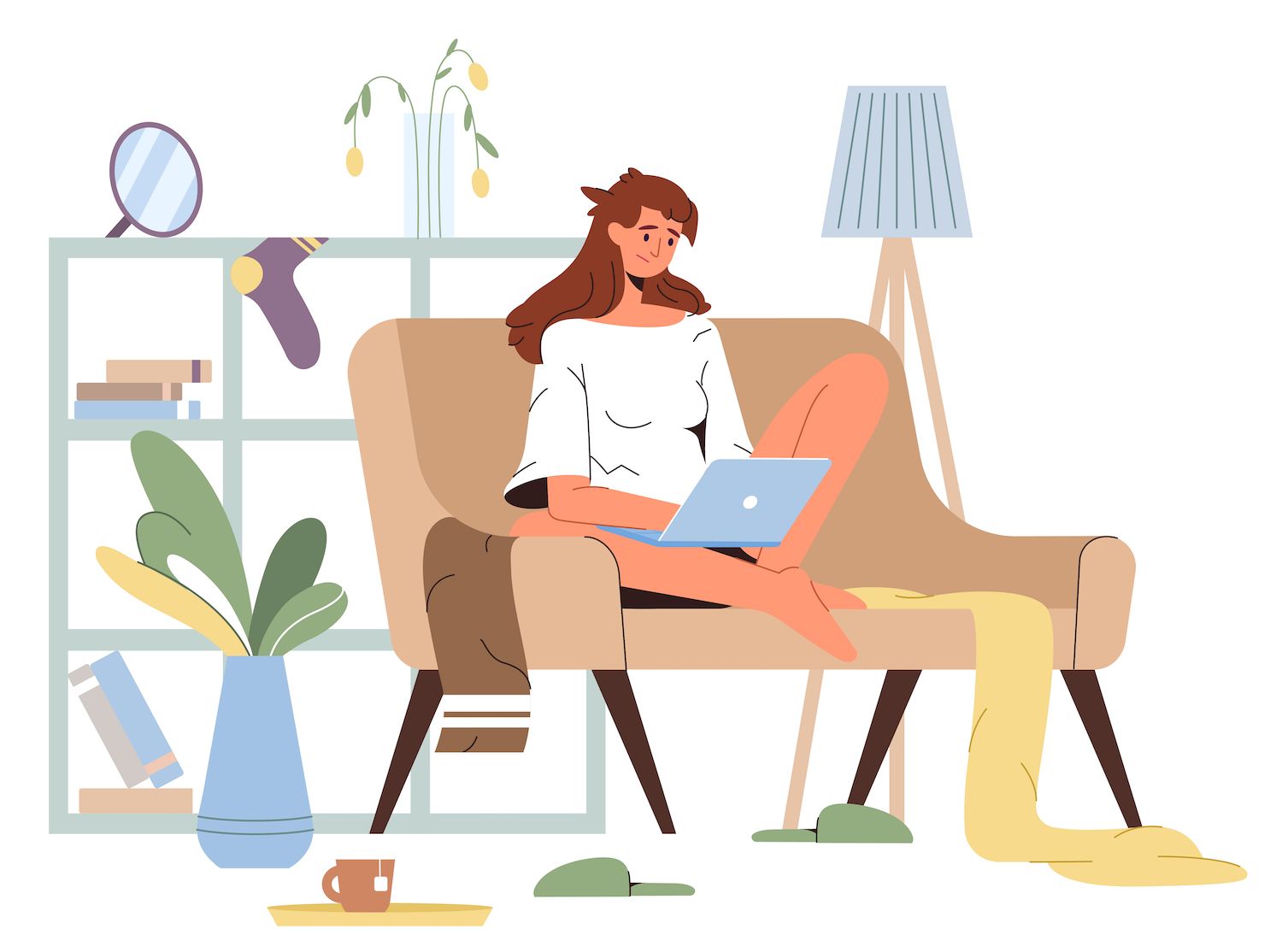The reasons why you're not a fan of your voice
Did you record a video or audio recording of yourself? Have you watched it, or replayed it and then thought " That'snot what my voice is like! You're right?" Well, you aren't alone. After launching a Twitter poll, we learned other people have similar opinions on the sound of their voice, too.

As it turns out, it's fairly normal to be uncomfortable with the voices of our own unembodied voices. Why is that? As it happens, there are a few very real motives for this feeling and they can be classified into two main boxes which are psychology and physiology.
In this brief piece, we'll go over the psychological and physiological reasons why you might hate the sound of your voice (or perhaps think that it sounds like something else), and what you can do to try to change your opinion about it.
In this article
- Why does my voice sound different in recordings?
- How to stop hating the sound of your voice on video
Why does my voice sound different in recordings?
So we're going to get a little scientific in this section However, don't be concerned, dictionaries and high school textbooks aren't required. The first topic is physical stuff--how your body interprets sounds.
Here's the physiology of the brain.
No two people are identical or feel things the same way--literally. The research shows that different people aren't able to see colors the same manner regardless of whether they're looking at the exact same item. Similarly, we don't hear similarly, too, which is thanks to both our anatomy as well as physics.
What's interesting is that the same physical activity occurs in the body when you are hearing the voices of others is happening when hearing the sound of your voice on recordings too. What is the method?
The big physiological differences the body experiences are mostly due to how sound waves travel through air, and what happens when it passes through solids. If you are hearing sounds in the surrounding area, frequencies are transmitted to your ears via air. This is the place where the ears perform some amazing things.

The sound waves enter from the outer part of the hearing ear through the ear canal and hit the eardrum. The eardrum then vibrates and transmits signals to the smallest bones of your body, including the stapes, malleus and incus. After that, according to the NIDCD, a few more actions happen quickly
- The ear bones transmit audio signals to the snail shell-looking cochlea that is filled with fluid. The cochlea splits into two parts from starting to the end, referred to as the basilar membrane. It is the base of the hearing system.
- Similar to the way water ripples in bass subwoofers, these waves of vibrations ripple fluid inside your cochlea along the basilar membrane. Small hair cells sail the wave upwards and down.
- During this process, pore-like channels become open as chemicals work their way through the cells to send an electrical signal from the auditory nerve to the brain. The brain is then able to interpret the auditory signal to be sounds you recognise (or don't).
That's all well and good for external auditory signals, but how about your own voice?
It is apparent that the way your voice sounds to you is also affected by how the vocal cords move through your whole skull. According to the research in audiology via the internal bone conduction (also also known as the otoacoustic) the vibrations travel to your cochlea . They also add an additional layers of "sound" that you can interpret.
Because lower frequency sounds travel through the dense materials more efficiently than higher frequencies, your brain interprets the high quality of the sound or the internal conduction of your voice as bass-ier than you would otherwise believe without having the additional resonances.
Here's the science behind it.
According to the findings of psychological studies, when we decide which way we feel about the subject, the experience we have with said thing matters in our choice. As such it is true that there are two major methods that our previous experiences influence these decisions: novelty versus preference for familiarity.
Novelty preference describes how we take to liking something new, whereas the familiarity preference is how much we like what we're more familiar with.
There are many factors that come into play in determining where on the spectrum people prefer to place themselves. But those who don't like the sound of their voice on recordings, are experiencing negative novelty preference and a bias toward familiarity preference.Basically, one of the main psychological reasons that those of us who don't like our recorded voice is because we're not familiar with it, and we prefer familiar things
There are other variables at play, including how the voice we use plays a part in our social identity. As we record ourselves, the voice confrontation might not be in line with what we are identifying as. When speaking to The Guardian one McGill University neuroscientist, Marc Pell stated:
"When we are able to hear the voice of an individual, disconnected from other aspects of our actions, we may undergo the natural process of evaluating our own voice as we usually do when we hear others' voices ... I'm thinking we then compare our own impressions of the voice to the way other people judge ourselves socially. This can cause numerous people to be unhappy or unsatisfied by the way they sound because the perceptions they make correspond to the traits of their social lives that they want to portray."
Self-assessment of our voice can create expectations of what we believe our voices have to sound like, in comparison with what our actual voices appear to sound like. The psychological comparison can be one of the reasons you believe thatyour voice is different than what you expect.
How to stop hating the sound of your voice on video
While there's not much we can do about the neurological process of hearing however, we could think about what we can do to address the mental issues associated with hearing our own voice. To help figure this out we talked to Michael Keenan, co-founder of Peak Freelance, an online community that offers experts in interviews as well as podcasts about the freelance lifestyle (aka many videos as well as recording of the voice). The company is also in the"familiarity" camp.
"I dislike my personal voice. My perception is that I sound very whiny, and I speak too fast. I am embarrassed to hear my voice on tape. But, if you want to create a podcast, or make videos on the internet it is important to go over it ."
The idea to "getting over it" seems simple enough in theory, but what about the actual implementation?
"After repeated exposure of my voice it was time to come to the fact. It was unlikely that I would ever enjoy my voice, but it's not a problem for me. It becomes easier to hear your voice over time ."
We'll take a closer look to the term "repeated exposure."
Mere Exposure Effect
The idea of repeated exposure Michael has mentioned is yet another method to describe the " Mere Exposure Effect" or the earlier mentioned, "familiarity preference."
The process described by Michael described is about taking what was novel or unfamiliar, and making it more familiar. If the tone of your voice becomes more familiar to you, you get used to it. In the process, it becomes easier to watch and/or editing videos of yourself.
Be an observer
But what if repeated exposure over time still doesn't help? Michael provides additional suggestions:
"Listen to your recorded voice in the role of an observer. Imagine it's not your voice. You want to really nail the reasons you're not happy with your voice. Then look for ways to improve it. ."
When we're trapped in the mindset of "my voice sounds weird" in lieu of identifying the factors that make us uncomfortable, it's harder to resolve the problem. Michael suggests using this active approach to figure out what parts of your voice you don't like and working to correct them.
"Maybe it's time to speak more slowly, or perhaps clearer. Perhaps you choose to make an audio-persona so that it's less "you" but more like acting in some way. When you're done with the day, the big hurdle is the person you are.
There is no magic trick. Accepting and embracing your natural voice is the very first stage, and then you'll need to find ways to become a better speaker will make you more confident in your own vocal tone ."
That last bit is a nice segue into our last bit of tips for changing the impression of your voice acceptance.
Acceptance
If you're not going to vocal therapy or enrolling in classes in public speaking, the next step of being more comfortable with your voice is to accept it as it is.
The only person who thinks your voice is "weird" on recordings is your voice. For everyone else, it's exactly the way normal as they do not "hear" your bone conduction, which gives your voice that extra subwoofer layer.
People are also more likely to listen to the content of your words rather than the sound high quality your voice (unless there's an issue with your microphone or audio quality issue but then they'll blame the technology). Therefore, don't fret about what other people think. Simply create amazing material.
Get your video groove on by recording
Record allows you to be more efficient than ever before to make high-quality videos for your needs. No matter if you're a professional in communication marketing executive, CEO or even a social media influencer, you can make videos quickly and easily.
